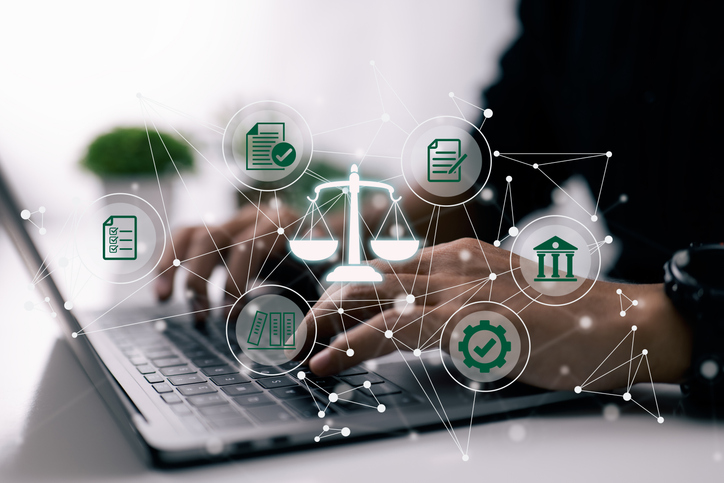Every department within the enterprise is being exposed to innovation. The legal department is no different.
In fact, these areas are often hotbeds for innovation and experimentation. This year, for example, two-thirds of legal professionals believe spending on artificial intelligence will increase within their department; according to survey results from OpenText in conjunction with Ari Kaplan Advisors.
Related: Artificial intelligence in the legal industry: Adoption and strategy – Part 1 A look at the state of AI adoption and how it is changing the strategic role of associates.
Increasingly, legal departments will see a convergence of multiple (technology) disciplines and the expanding responsibilities of corporate legal operations professionals.
Today’s corporate legal leaders are shaping IT strategy with an eye towards litigation-readiness and partnering with security teams on data breach response plans
“AI, cloud and security have emerged as top priorities for law firms and enterprise legal departments as we approach 2020,” said Todd Elliott, OpenText vice president for security, artificial intelligence, and legal technology.
“As legal professionals ready themselves for the latest requirements of the new economy and the new way to work, cutting edge software solutions in legal technology…can help them achieve their goals in AI, cloud and security.”
The ever-presence of the cloud and the emergence of AI represents, but full adoption is a long term endeavour.
Related: Artificial intelligence in the legal industry: AI’s broader role in law – Part 2 A look at AI’s broader role within the law firm, with specific case studies from Perkins Coie and Hogan Lovells.
The announcement states: ‘With discussions increasingly focused on innovation, efficiency and the next generation of legal practice, legal operations leaders are at the forefront of piloting new technology, executing strategic initiatives, and helping senior leadership navigate the evolving risk and compliance landscape.’
Key findings
• Movement toward the cloud continues
The majority of respondents, 83%, rated their organisation’s current use of cloud-based tools at a three or above on a 1-5 scale. And, an impressive 94% rated their company’s openness to implementing cloud solutions in the coming year at three or higher.
• The use of AI is growing
Within legal departments, 34% of respondents currently use AI (up from 23% in 2017). However, 66% of respondents believe that spending on AI solutions will increase in 2019.
• Focus on security is strong, but sensitive
The majority of respondents reported the legal department’s influence on information security decisions has increased, with 49% claiming the legal team is much more involved in information security. Having a seat at the table is significant as 91%of respondents also reported they have data security concerns around distributing electronically stored information to multiple discovery vendors and law firms.
• The GDPR is driving major eDiscovery, privacy and security changes
With 80% of respondents advising data privacy concerns are affecting how they handle discovery and investigations, the impacts of regulations such as GDPR are starting to be realised by legal professionals. Just under half of respondents reported the volume of government or regulatory investigations has grown over the past 12 months.
• ECM joins the legal tech development conversation
Finally, 74% of participants reported if their ECM systems were integrated with their eDiscovery systems, it would be beneficial for the legal department.
Related: Artificial intelligence in the legal industry: The future – Part 3 A look at how to adopt AI, and the crucial role it will play in the future of law; with insights from Perkins Coie and Hogan Lovells.










